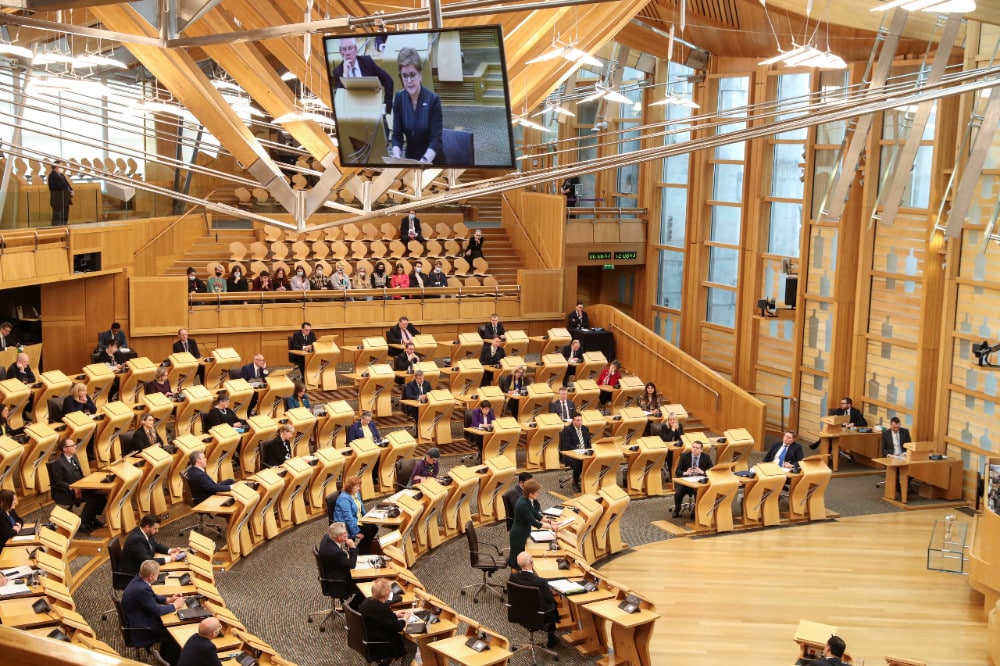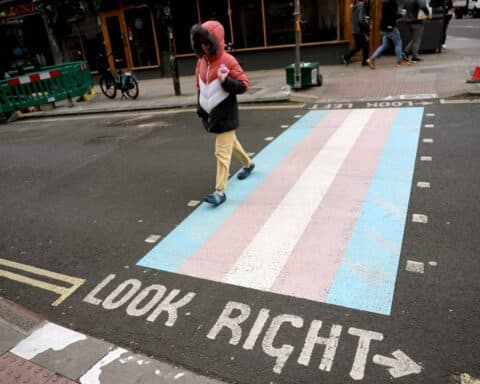GLASGOW, Scotland (CNS) — Catholic bishops have asked Scottish politicians to throw out a bill to allow people to change their gender by self-declaration.
They issued a statement ahead of a Dec. 21 “Stage 3” vote to amend and then pass the Gender Recognition Reform (Scotland) Bill, saying that the proposals were “unsafe and likely to harm young people.”
The bill would make it easier for people to change their genders by scrapping a legal requirement for a medical diagnosis of gender dysphoria followed by a waiting period of two years before obtaining a gender recognition certificate.
It would allow people to change their legal gender within six months by simply self-identifying with a new gender of their choice. It also would lower the age of gender transition from 18 to 16 years.
In their statement, the Scottish bishops’ conference said it was “gravely concerned” about the bill and urged members of the Scottish Parliament to oppose it.
“Children must be protected from making permanent legal declarations about their gender, which may lead to irreversible elective interventions, including surgery,” they said. “Lowering the minimum age from 18 to 16 and introducing a system of self-identification will put more children and young people on this path.”
“Women’s organizations also have recorded their own concerns about the bill, principally that the proposed reforms would increase risks to the safety of women and girls by men self-declaring as female and accessing women-only spaces,” the statement said.
“There are also real concerns that the proposals will mean a female health care practitioner will no longer be guaranteed for women and girls, even when it is requested.”
The bishops also raised concerns about the impact the bill might have upon those who disagreed with such legal changes.
“The freedom to hold the reasonable view that sex and gender are given and immutable” should be upheld, especially for those who work in “education, health care, the prison service, or as marriage celebrants who, from both reasonable and religious perspectives, hold an understanding of marriage as a union between one man and one woman,” the bishops’ statement said.
The British government in London also opposed the bill on the grounds that the changes would affect the entire U.K. and not just Scotland.
The U.K. government has threatened to take legal action against the Scottish Parliament if the bill is passed.
An opinion poll published in mid-December by YouGov on behalf of The Times, a London-based newspaper, found that 66% of voters also opposed the bill, while just 21% of people in the survey said they supported it.





